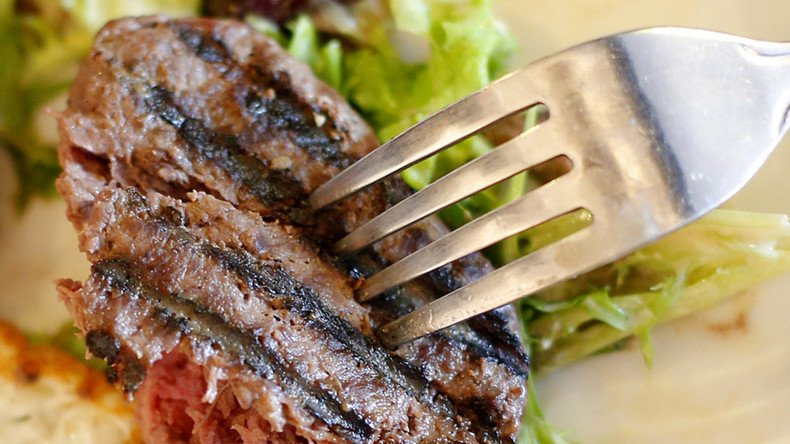Red meat may trigger kidney malfunction – study

Crispy bacon, a juicy rib eye steak, or beef burger – these mouthwatering red meat delicacies have long been accused of being bad for health. Unfortunately, a new study based on 15 years of research now claims to back that theory with scientific evidence.
Risk of kidney failure significantly increases with constant red meat consumption, a new study conducted at the National University of Singapore suggests.
“Red meat intake is strongly associated with ESRD risk [end-stage renal disease, or kidney failure] in a dose-dependent manner,” the study’s abstract says.
More than 60,000 adults from Singapore took part in the long-term research. They were divided into several groups according to how much red meat they consumed. Constant follow-ups showed that around 1,000 participants developed kidney failure.
READ MORE:Vegan toddler admitted to ICU for malnutrition, parents could face neglect charges
The people in the group claiming to eat the largest amount of red meat had a 40 percent higher risk of experiencing kidney failure compared to those consuming moderate amounts.
Luckily, not every type of protein has been found harmful to kidneys, and those who look after their muscles can still get their needed protein fix from poultry, fish, eggs, or dairy products, thus reducing the risk.
“Our study shows that red meat intake may increase the risk of ESRD in the general population and substituting alternative sources of protein may reduce the incidence of ESRD,” according to the study.
This, however, doesn’t mean that people should “avoid red meat like poison,” but finding a substitute for at least one meal with red meat a day is not a bad idea, the study’s senior author, Woon-Puay Koh, told Reuters Health in an email letter.
“Current guidelines recommend restricting dietary protein intake in patients with advanced chronic kidney disease to help reduce symptoms and slow progression to end-stage renal disease,” Koh also noted.
An estimated 500 million people suffer from chronic kidney condition, some of whom need constant dialysis procedures or a kidney transplant, researchers noted.
It was previously thought that people with kidney problems who eat red meat on a daily basis could encounter problems with a substance known as urea building up in their bodies, because if a person’s kidney’s aren’t working problem, it is not sufficiently expelled in their urine.
The new study stresses that there is no evidence that red meat causes kidney conditions, but it apparently contributes to the pathological process.














